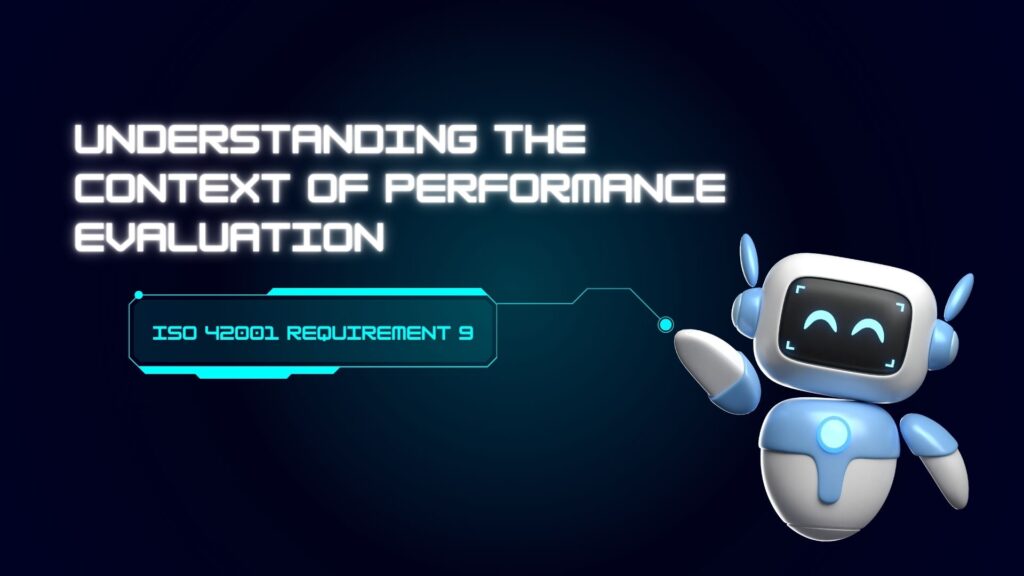In today’s increasingly competitive business landscape, organizations are continuously seeking ways to enhance their energy performance and reduce their environmental impact. ISO 42001, the international standard for Energy Management Systems (EnMS), provides a structured framework for organizations to achieve these objectives effectively. Among its crucial ISO 42001 Requirement 9 Performance Evaluation, which focuses on Performance Evaluation. Understanding the context of Performance Evaluation within ISO 42001 is essential for organizations aiming to optimize their energy management efforts.
Importance of Performance Evaluation:
Performance Evaluation serves as the cornerstone for assessing the effectiveness of an organization’s energy management efforts. It enables organizations to monitor, measure, analyze, and evaluate their energy performance against established objectives and targets. By systematically evaluating performance data, organizations can identify areas for improvement, track progress, and make informed decisions to enhance energy efficiency continuously.
Implementation:
Implementing Performance Evaluation under ISO 42001 involves several key steps:
1. Establishing Performance Indicators: Organizations must identify relevant Key Performance Indicators (KPIs) to measure energy performance accurately. These KPIs may include energy consumption per unit of production, energy intensity, and energy cost.
2. Data Collection and Monitoring: Implement robust systems for collecting, recording, and monitoring energy consumption data. Automated metering systems, energy management software, and manual readings can be utilized for this purpose.
3. Analysis and Interpretation: Analyze performance data to identify trends, deviations from targets, and areas of inefficiency. Interpretation of data provides insights into the effectiveness of energy management activities and helps prioritize improvement actions.
Auditing Techniques:
Conducting regular energy audits is a fundamental auditing technique to verify the effectiveness of Performance Evaluation. Energy audits involve systematic inspections, surveys, and analyses of energy usage patterns, equipment efficiency, and operational practices. These audits help validate the accuracy of performance data, identify energy-saving opportunities, and ensure compliance with ISO 42001 requirements.
Example:
Consider a manufacturing facility that has set a target to reduce energy consumption by 10% within the next year. Through Performance Evaluation, the facility regularly monitors its energy consumption using KPIs such as energy per unit of production. By analyzing monthly energy data, the facility identifies inefficiencies in its HVAC systems and implements corrective measures, leading to a 15% reduction in energy consumption within six months.
Conclusion:
In conclusion, Performance Evaluation under ISO 42001 Requirement 9 is a vital process for organizations committed to enhancing energy performance and sustainability. By implementing robust monitoring systems, analyzing performance data, and conducting regular audits, organizations can effectively identify opportunities for improvement and achieve their energy management objectives. Embracing Performance Evaluation not only drives energy efficiency but also fosters a culture of continuous improvement and environmental responsibility within organizations.
FaQs:
- What is ISO 42001 Requirement 9?
- Why is Performance Evaluation important in ISO 42001?
- What are some examples of Performance Evaluation techniques?
- How can organizations implement Performance Evaluation effectively?
- How does Performance Evaluation contribute to organizational sustainability?
——————————————————————————————————————–
Infocerts, 5B 306 Riverside Greens, Panvel, Raigad 410206 Maharashtra, India
Contact us – https://www.infocerts.com

